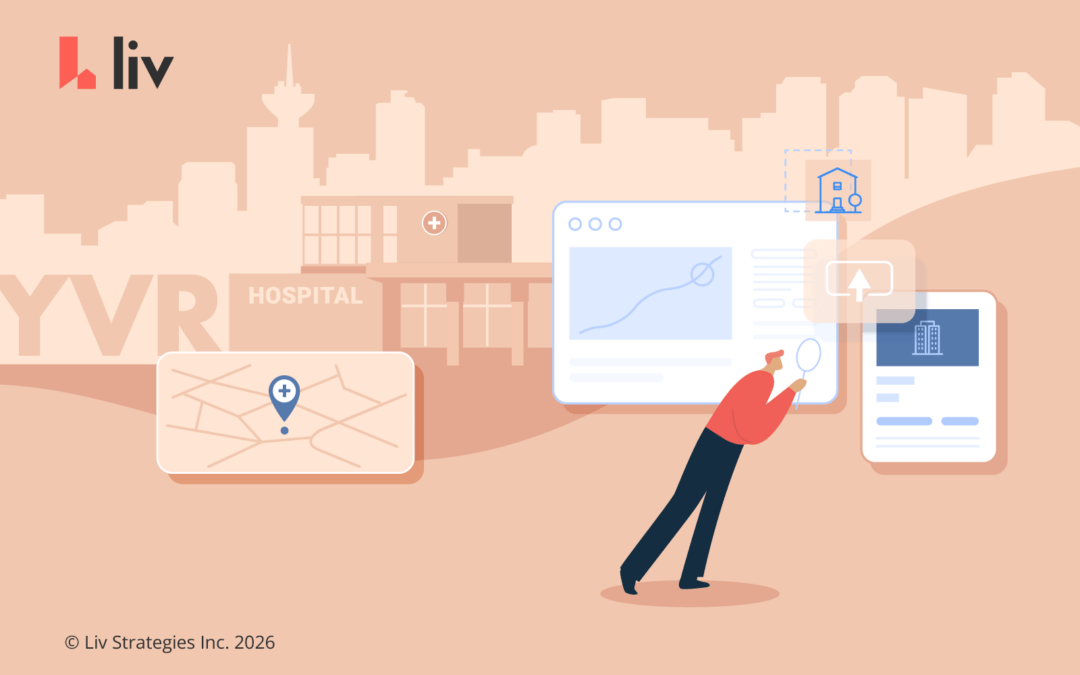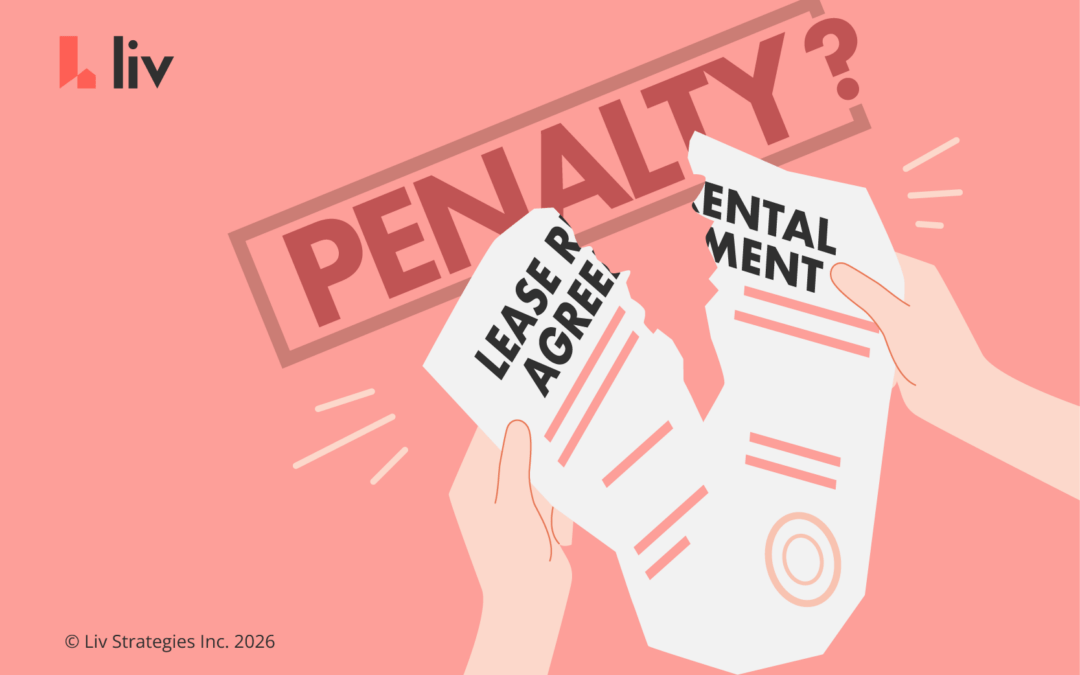Homeowners and landlords in Ontario have a lot to think about during tax season. There are a number of taxes related to the sale, purchase and holding of property in the province, as well as federal and municipal taxes on top of these. To help you make sense of all the different taxes for homeowners in Ontario, liv.rent has compiled a guide to each, including property tax, land transfer tax, HST, non-resident speculation tax and more.
Download The Landlord’s Guide To Property Tax Deductions
The ultimate tax guide for landlords in Canada. Everything you need to know about taxes, and how to get a bigger return.
Types of taxes for Ontario homeowners
Let’s begin by looking at the various kinds of taxes Ontario homeowners and landlords should familiarize themselves with. In this section, we’ll be looking at each tax by rate, frequency of payment, and under what circumstances homeowners are required to pay.
Property Tax
(PAID ANNUALLY)
Every Ontario property owner is subject to an annual Property Tax, calculated by and payable to your municipality. As such, Property Tax rates vary from city to city and the money collected goes towards funding things like public education, firefighting, libraries, local police and other civic services like roadwork, waste disposal and parks & leisure facilities. Property taxes are by far the largest source of income for Ontario municipalities and are a key part of keeping our communities safe and liveable.
Property Tax rates are calculated using the general municipal tax rate outlined by your municipality each year and are based on your property’s assessed value as determined by the Municipal Property Assessment Corporation (MPAC). Additionally, every Ontario resident must pay an Education Tax Rate which is set by the provincial government and helps fund elementary and secondary schools in the province.
In Toronto, two property tax bills are issued per year: an Interim Property Tax Bill due March 1, and a Final Tax Bill due July 2. Homeowners can also choose to pay in six or eleven installments for flexibility.
Property tax rates by municipality in Ontario
| City | Property Tax Rate |
| Toronto | 0.666274% |
| Vaughan | 0.695093% |
| Markham | 0.662708% |
| Richmond Hill | 0.691472% |
| Ottawa | 1.169276% |
| London | 1.461166% |
| Hamilton | 1.327000% |
| Oakville | 0.760437% |
| Mississauga | 0.881540% |
Source: Wowa.ca
>> Recommended Reading: Everything Ontario Landlords Need To Know About Tax Deductions
Harmonized Sales Tax (HST)
(ONE-TIME PAYMENT)
The Harmonized Sales Tax is paid at the time of purchasing new construction homes in Ontario, at a rate of 13% – though both federal and provincial rebates are available for some cases. Generally, both the tax itself and any available rebates are factored into the price by the builder, but it’s always a good idea for new homebuyers to double-check. For all property purchases in the province, HST is payable on Realtor® fees as well as any legal fees associated with the transaction.
For resale properties, HST is not applied unless the property has either had substantial renovations, or some or all of the property is for commercial use.
Tax on Rental Income
(ANNUAL PAYMENT)
Ontario doesn’t have any specific taxes on rental income, but landlords will have to pay income tax on any rental earnings in accordance with Canada’s income tax guidelines.
How much you’ll need to pay and how it’s recorded depends on how you’ve structured your rental business. For individuals who own and rent property, any revenue earned is considered income and is taxed according to the rate for your tax bracket. If you share ownership or the property is held under a business, things get more complicated. Shared owners split the income and each portion is taxed according to that person’s income tax rate, while businesses are subject to a Canada-wide rate for rental income in addition to a provincial rate.
Land Transfer Tax
(ONE-TIME PAYMENT)
Ontario home buyers will also need to pay a one-time Land Transfer Tax at the time of closing the sale. If you happen to be purchasing in Toronto, you’ll also be on the hook for a second Municipal Land Transfer Tax specific to the city. Let’s quickly break down the rates for each:
Ontario Land Transfer Tax
- 0.5% of the value of the property up to and including $55,000
- 1% of the value which exceeds $55,000 up to and including $250,000
- 1.5% of the value which exceeds $250,000 up to and including $400,000
- 2% of the value between $400,000 and $2,000,000
- 2.5% for amounts exceeding $2,000,000, where the land contains one or two single-family residences
Toronto Land Transfer Tax
- 0.5% up to and including the first $55,000
- 1% of the value which exceeds $55,000 up to and including $250,000
- 1.5% of the value between $250,000 and $400,000
- 2% of the value between $400,000 and $2,000,000
- 2.5% of the value over $2,000,000
Capital Gains Tax
(ONE-TIME PAYMENT)
Homeowners will only need to be concerned about the Capital Gains Tax if they sell an investment property, though the tax also applies to properties that were completely or partially rented to tenants as well. Taxes are payable on 50% of the increase in value and count towards your income tax for the year.
Non-Resident Speculation Tax
(ONE-TIME PAYMENT)
As of October 25, 2022, Ontario has raised its Non-Resident Speculation Tax rate to 25% on purchases of real estate in the Greater Golden Horseshoe (GGH) Region by foreign entities or corporations. This tax is in addition to the province-wide Land Transfer Tax and any other sales taxes associated with the purchase of a home.
Taxation example
Now that we’ve covered the different types of taxes homeowners in Ontario face, let’s look at an example of their application. For the purpose of this taxation example, we’ll be looking at a $1,000,000 property in the City of Toronto during 2023, and factoring in all the taxes involved in the purchase and upkeep of this property.
| TYPE OF TAX | RATE | CALCULATED PAYMENT |
| HST (if purchased new)* | 13% | $130,000 |
| Ontario Land Transfer Tax (First $55,000) | 0.5% | $275 |
| Ontario Land Transfer Tax ($55,000-$250,000) | 1% | $1,950 |
| Ontario Land Transfer Tax ($250,000-$400,000) | 1.5% | $2,250 |
| Ontario Land Transfer Tax ($400,000-$1,000,000) | 2% | $12,000 |
| Toronto Land Transfer Tax (First $55,000) | 0.5% | $275 |
| Toronto Land Transfer Tax ($55,000-$250,000) | 1% | $1,950 |
| Toronto Land Transfer Tax ($250,000-$400,000) | 1.5% | $2,250 |
| Toronto Land Transfer Tax ($400,000-$1,000,000) | 2% | $12,000 |
| Non-Resident Speculation Tax | 25% | $250,000 |
| Property Tax | 0.63% | $6,300 |
*May be eligible for a rebate
The above example may seem daunting, but keep in mind that not all of these taxes will apply to every property, and some even have rebates available to help homeowners and landlords. If you do happen to be renting, be sure to check out our article on rental property tax deductions for Ontario landlords, and download your copy of our Canada-wide guide here.

Rethink The Way You Rent
Not on liv.rent yet? Experience the ease of digital applications & contracts, verified tenants & landlords, virtual tours and more – all on one platform. Sign up for free or download the app.
Subscribe to receive the latest tenant & landlord tips and get notified about changes in the Canadian rental market.
>> Stay up-to-date on the average rent in Vancouver, Toronto and Montreal: Rent Reports.




0 Comments